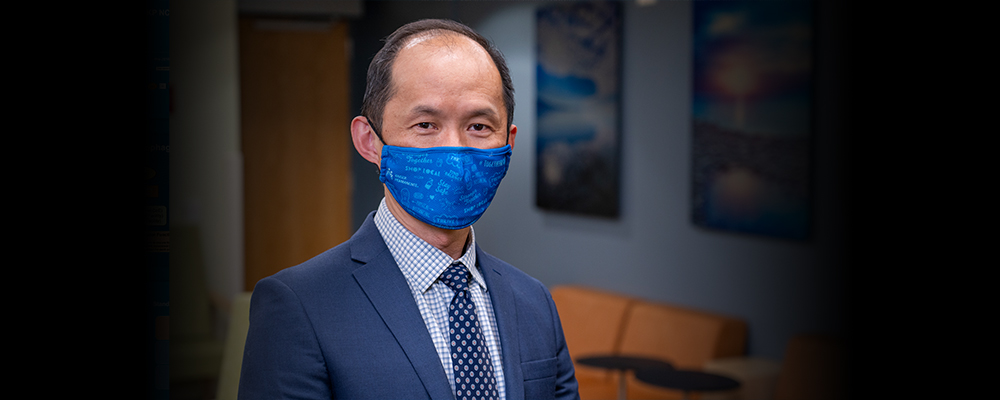Swee Teh, MD
Gastric-Esophageal Cancer Program
“This program isn’t about one person or specialty. It’s about a deep, cohesive collaboration among colleagues in multiple specialties, all of whom put patients first, while helping one another grow and develop the program.”
The number of U.S adults who develop gastric or esophageal cancer each year is small – approximately 2.5% of all new cancer diagnoses. This means most oncologists or surgeons outside of a tertiary academic center might see only a few cases per year, which makes it challenging to provide consistent, high-quality care for these low-volume malignancies in a world of rapidly evolving treatments.
Dr. Teh and an enterprising group of colleagues established a regional virtual care program to tackle this limitation. The Gastric-Esophageal Cancer program provides specialty-driven cancer care through a combination of consolidated surgical services and innovative, telemedicine-based case management. The group collaborated with the KP Division of Research to establish an early case-ascertainment system and the System X Information Technology team to develop a patient-management dashboard embedded into our electronic health record system.
A team of gastrointestinal medical oncologists triages cases daily to ensure timely, accurate diagnosis and staging. Appropriate cases are referred to a virtual, weekly multidisciplinary case conference to formulate and document individualized, evidence-based care plans. Patients who are candidates for surgery receive treatment at designated high-volume surgical centers with chemotherapy and radiation given conveniently near the patient’s home medical center. Throughout the process, a patient care coordinator functions as the primary liaison between patients and their team of clinicians to ensure timely, coordinated care.
The program is changing lives. A retrospective study of nearly 1,500 patients diagnosed with stomach cancer between January 2010 and May 2018 compared the outcomes of patients diagnosed before the cancer team was established in 2016 with the outcomes of those treated after the program was implemented. Of those patients with a stage I, II, or III cancer who had surgery to remove the tumor, 3-year survival rates for those treated prior to the program were 66%; after regionalization, they rose to 83%.
“Drs. Yan Li, I-Yeh Gong, Swee Teh, and Simon Ashiku represent the best of Permanente Medicine in modeling a culture of collaboration, spirit of ingenuity, and mission-driven purpose to provide the highest quality care to our patients,” says TPMG Associate Executive Director Brian Missett, MD. “They deliver medicine with heart and clinical excellence.”
